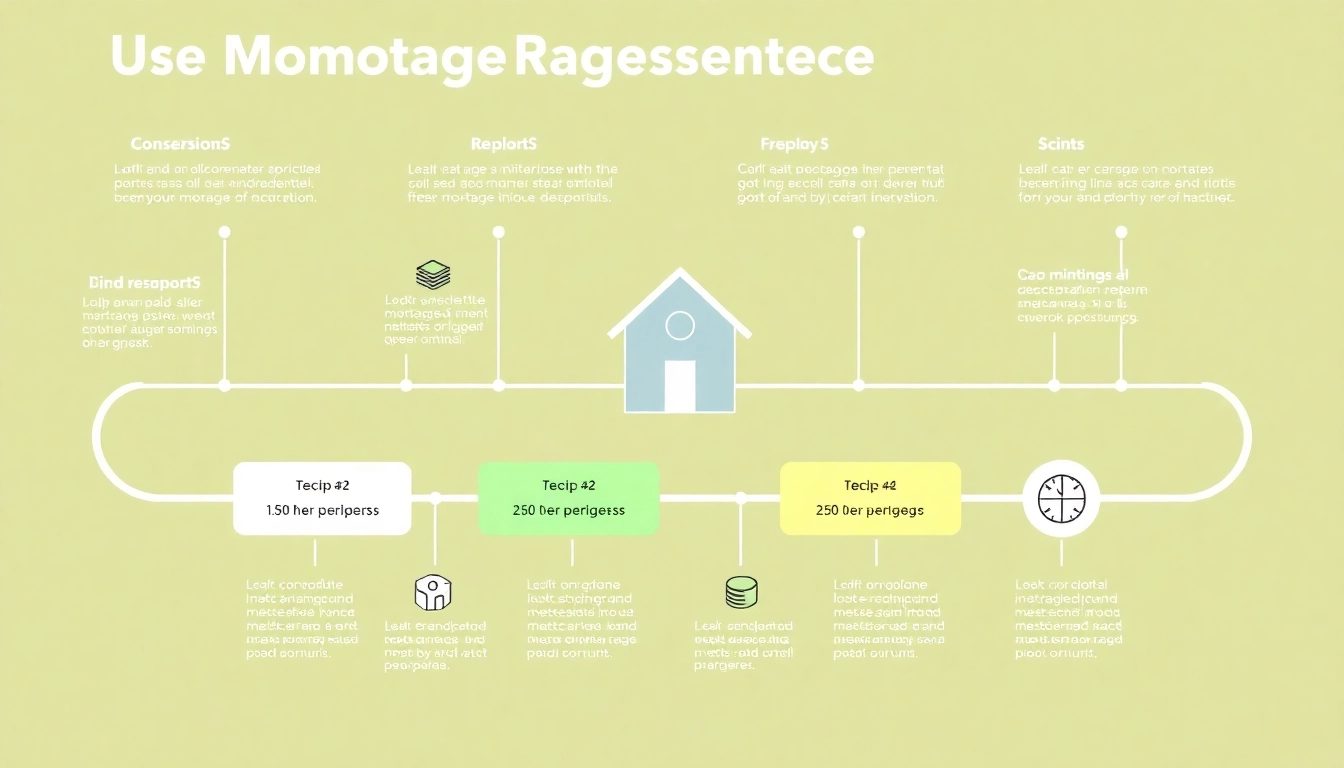Understanding International Real Estate Markets
Investing in international real estate can open doors to diverse opportunities that often remain unexplored by domestic investors. The beauty of investing overseas is not only in the financial gains but also in the potential for capital appreciation and acquiring residency in appealing locations. However, successfully navigating the international real estate landscape requires a sound understanding of several key aspects. In this comprehensive guide, we will explore how to effectively seek out international real estate investment opportunities, tapping into the global real estate market’s vast potential.
Identifying Key Regions for Investment
The first step in making a successful investment is identifying which regional markets to target. A range of factors influences an area’s viability for real estate investment, including economic trends, demographic movements, and local demand for housing. Here are some essential considerations for identifying key regions:
- Economic Stability: Look for countries with stable economies and consistent growth rates. Economic indicators such as GDP growth, employment rates, and foreign direct investment can provide valuable insights into the health of the market.
- Market Demand: Evaluate the local demand for properties. Areas with a rising population or increasing tourist numbers may indicate high demand for housing, which can lead to better return on investment (ROI).
- Political Stability: Political risk can affect your investment. Countries with stable governments and sound policies toward foreign investment are generally more attractive.
- Real Estate Regulations: Familiarize yourself with local real estate laws and regulations. Different countries have varying rules concerning property ownership, taxation, and investment incentives.
Understanding Local Laws and Regulations
Every country has its specific laws and regulations governing real estate transactions. As an investor, it’s crucial to be aware of these local laws, including but not limited to:
- Ownership Rules: Some countries have restrictions on foreign ownership of real estate. Research local laws to understand what can and cannot be done.
- Tax Implications: Taxes related to property purchase, capital gains, rental income, and inheritance vary widely by location. Consult with a tax professional familiar with international real estate to develop a clear understanding.
- Residency Rules: In some jurisdictions, property ownership can lead to residency benefits, making it a strategic investment choice.
Analyzing Market Trends and Economic Indicators
Just like the stock market, real estate markets exhibit trends that can guide investment decisions. Pay attention to market indicators, which may include:
- Property Valuations: Always research historical trends in property prices. An area experiencing rapid price appreciation may be worth considering, but also assess whether the increase is sustainable.
- Rental Yields: Investigate average rental prices in the region and compare them against property costs to determine potential rental yields.
Methods to Find International Real Estate Investment Opportunities
Utilizing Online Property Listings Effectively
One of the most accessible ways to explore international real estate opportunities is through online property listings. Websites that specialize in international real estate can provide a wealth of information, including:
- Comparative Listings: Review properties that meet your criteria and compare them across various locations to get a clearer picture of market prices.
- Market Insights: Many platforms offer market reports, trends, and analyses you can utilize to make informed decisions.
- Virtual Tours: With many listings presenting virtual tours and detailed photographs, investors can vet properties from the comfort of their homes, minimizing travel costs initially.
Networking with Local Real Estate Agents
Local real estate agents can be invaluable resources in navigating the intricacies of a foreign market. Building a relationship with reputable agents can yield numerous benefits such as:
- Local Expertise: Agents have an in-depth understanding of the market, pricing, neighborhoods, and emerging investment hotspots.
- Access to Off-Market Properties: Good agents often have lists of properties not yet publicly listed, providing a competitive edge.
- Negotiation Skills: An experienced local agent can negotiate on your behalf with sellers, making the process smoother and potentially securing better deals.
Leveraging Social Media and Online Forums
In today’s digital age, social media platforms and forums can serve as significant tools for finding investment opportunities. Engaging in dedicated groups and discussions can help you:
- Gain Insights: Learn from other investors’ experiences about specific markets, challenges, and key considerations.
- Identify Trends: Keep abreast of what topics or regions are generating buzz among investors and real estate professionals.
- Network: Connect with other investors and industry professionals who share your interests and may offer leads on potential opportunities.
Evaluating Investment Risks and Benefits
Assessing Currency Risks and Economic Stability
Currencies fluctuate, and this volatility can impact your investment returns. Hence, assess currency risk in relation to the target country’s economic stability. Consider the following:
- Diversification: Diversifying investments across multiple countries can help mitigate currency risk, as currencies do not move in tandem.
- Hedging Options: Explore options for hedging currency risk, which may include forward contracts or currency ETFs.
Understanding Ownership Structures and Tax Implications
International property ownership can involve complex structures. Understanding different ownership options—like direct ownership, partnerships, or real estate investment trusts (REITs)—can affect both your control over the investment and tax responsibilities:
- Direct Ownership vs. LLCs: Determine whether to own property directly or through a legal entity, weighing the implications on taxes and legal protections.
- Double Taxation Treaties: Check if your home country has a treaty with the country in which you plan to invest to avoid double taxation.
Identifying Reliable Property Management Solutions
If you are not planning to live near your international investment, consider a reliable property management solution. Key factors include:
- Local Knowledge: Property managers with local knowledge can ensure your investment is well-maintained and can navigate any challenges that arise.
- Reputation: Research potential firms to ensure they have a solid reputation for reliability and professionalism.
Financing International Real Estate Investments
Exploring Different Financing Options
Financing options for international real estate can vary widely depending on the country and your situation. Some options include:
- Conventional Mortgages: Traditional banks may offer mortgages, but sometimes they require higher down payments for foreign buyers.
- Local Financing Solutions: Explore financing options available through local banks or international banks operating in the area.
- Owner Financing: In some cases, sellers may be willing to finance part of the purchase, which can ease the initial financial burden.
Understanding Cross-Border Financing Regulations
Cross-border financing often comes with its own set of regulations and restrictions. To navigate this landscape:
- Consult Professionals: Engage with financial advisors who specialize in international transactions to ensure compliance with all regulations.
- Be Aware of Exchange Risks: Fluctuating exchange rates can impact repayments; consider this when choosing a financing option.
Utilizing Investor Networks for Funding
Establishing connections with investor networks can be beneficial. These networks can provide funding resources, partnership opportunities, and even valuable market intel. Consider:
- Real Estate Investment Groups: Become a member of local or international real estate investment organizations to enhance funding and networking opportunities.
- Crowdfunding Platforms: Some investors use crowdfunding as a method to pool resources for real estate investments, allowing for smaller contributions while spreading risks.
Steps for a Successful International Investment Journey
Creating a Strategic Investment Plan
With a clear understanding of the market, financing, and local factors, it’s now time to outline your strategic investment plan. Your plan should:
- Define Your Goals: Have clear objectives regarding the returns you expect, time frames, and property types.
- List Action Steps: Outline measurable activities you’ll undertake to achieve your goals, including property research timelines and networking strategies.
Conducting Thorough Due Diligence
Before committing to any property, conduct thorough due diligence. This involves several aspects:
- Market Analysis: Examine property trends and forecasts in the area to ensure it aligns with your investment goals.
- Legal Verification: Ensure that the property title is clear, and verify that the seller has the right to sell the property.
- Inspection: Conduct property inspections to reveal any potential issues that may require investment down the road.
Measuring Success and Adaptation Strategies
Finally, it is essential to develop a method for measuring the success of your investment. This includes tracking financial metrics like rental yields and property value appreciation. Additionally, the ability to adapt to changing market conditions will be critical:
- Regular Reviews: Schedule regular evaluations of your investment performance to identify areas for improvement.
- Enhance Properties: Consider adding value through renovations or improvements that can attract higher rents or resale values.
By employing these strategies, you will be well-equipped to navigate the complexities of the international real estate market and maximize your investment potential. Remember, thorough research and planning are keys to discovering exciting opportunities in international real estate—just as important as knowing how to find international real estate investment opportunities.



